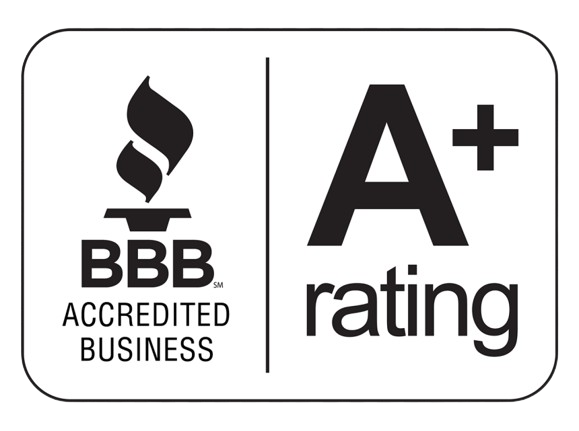
Whenever you hire a moving company, you’ll always be asked if whether it’s a residential move or a commercial one; but you don’t really know what is residential moving.
This article will explain what is residential moving and why it’s important to choose the right mover for your specific needs.
The Definition of Residential Moving
Residential moving refers to the process of relocating one’s household belongings from one home to another. It involves transporting furniture, appliances, personal items, and other possessions to a new residence. Residential moves can range from local relocations within the same city to long-distance moves across different states or even countries.
The Importance of Residential Moving
Residential moving is a significant life event that often marks a new chapter in a person’s life. It offers opportunities for growth, change, and fresh beginnings. Whether you’re moving for work, family reasons, or personal preferences, the act of moving allows you to create a new living environment that better suits your needs and aspirations.
Planning Your Residential Move
Planning is essential to ensure a smooth and successful residential move. Here are some key steps to consider:
Assess Your Moving Needs
Before diving into the moving process, assess your specific requirements. Determine the size of your move, the distance involved, and any additional services you may need, such as packing or storage solutions.
Create a Timeline
Establish a timeline for your move. Set a target date for when you want to be fully settled into your new home. Having a schedule will help you stay organized and ensure that all tasks are completed in a timely manner.
Budgeting
Allocate a budget for your move, taking into account expenses such as packing materials, moving services, transportation, and any potential unforeseen costs. It’s crucial to have a clear understanding of your financial resources and plan accordingly.
Finding a Reliable Moving Company
Choosing a reputable moving company is vital to a successful residential move. Here are some factors to consider:
Research and Reviews
Conduct thorough research on moving companies in your area. Read customer reviews and testimonials to gauge their reputation and reliability. Look for companies with extensive experience and positive feedback from previous customers.
Licensing and Insurance
Ensure that the Abbotsford moving company you choose is properly licensed and insured. This guarantees that your belongings will be protected in case of any damage or loss during the moving process.
Request Quotes and Compare
Obtain quotes from multiple moving companies and compare their services and prices. Take into account factors such as their availability, additional services offered, and any specific requirements you may have.
Packing and Organizing Your Belongings
Proper packing and organization are essential to safeguard your possessions during the move. Here are some tips:
Declutter and Donate
Before packing, declutter your belongings and get rid of items you no longer need. Consider donating or selling them to lighten your load and simplify the moving process.
Use Quality Packing Materials
Invest in sturdy boxes, packing tape, bubble wrap, and other packing materials to ensure the safety of your items. Fragile or valuable belongings should be packed with extra care and cushioning.
Label Boxes
Label each box with its contents and the room it belongs to. This will make unpacking and organizing much easier when you reach your new home.
Ensuring the Safety of Your Possessions
During the residential move, it’s crucial to take steps to protect your belongings. Here’s what you can do:
Secure Fragile Items
Wrap fragile items, such as glassware and electronics, in bubble wrap or packing paper. Place them in boxes marked as fragile and ensure they are packed tightly to prevent shifting during transportation.
Protect Furniture
Cover furniture with moving blankets or furniture pads to prevent scratches and dents. Disassemble larger pieces, if possible, to make them easier to transport.
Insurance Coverage
Consider obtaining additional insurance coverage for valuable items or belongings of sentimental value. This will provide added protection and peace of mind throughout the moving process.
Managing Utilities and Change of Address
To ensure a seamless transition, don’t forget to address important administrative tasks:
Notify Service Providers
Contact your utility companies, including electricity, gas, water, internet, and cable providers, to schedule disconnection and reconnection of services. Notify them of your move-out and move-in dates to ensure a smooth transition.
Change Your Address
Update your address with the relevant authorities, such as the post office, banks, credit card companies, and government agencies. Redirect your mail to your new address to avoid any potential disruptions.
Tips for a Smooth Transition
Here are some additional tips to make your residential move go smoothly:
Pack an Essentials Box
Prepare a box containing essential items you’ll need immediately upon arrival at your new home, including toiletries, a change of clothes, important documents, and any other necessities.
Take Inventory
Create a detailed inventory of your belongings before the move. This will come in handy when unpacking and help you ensure that everything has arrived safely.
Communicate with Movers
Maintain open communication with the moving company throughout the process. Provide them with any specific instructions or concerns you may have.
Unpacking and Settling into Your New Home
Once you’ve arrived at your new residence, it’s time to unpack and make it feel like home. Consider these tips:
Start with Essentials
Begin by unpacking the essentials box and setting up your bed, kitchen, and bathroom. This will give you a comfortable space to rest and prepare meals during the unpacking process.
Room-by-Room Approach
Unpack one room at a time to stay organized. Focus on one area before moving on to the next, ensuring that each room is fully set up before proceeding.
Personalize Your Space
Take the opportunity to arrange your belongings in a way that reflects your style and preferences. Add personal touches, such as artwork or photographs, to make your new house feel like a home.
Common Challenges in Residential Moving
Residential moving can come with its fair share of challenges. Here are a few common ones and how to overcome them:
Time Constraints
If you’re on a tight schedule, consider hiring professional movers who specialize in efficient and timely moves. They can help you save valuable time and handle the logistics on your behalf.
Emotional Stress
Moving can be emotionally taxing, especially if you’re leaving behind a familiar environment or loved ones. Take care of your mental well-being by seeking support from friends, family, or professionals during this transition.
Adapting to a New Area
Adjusting to a new neighborhood or city can take time. Make an effort to explore your surroundings, join local community groups, and engage in activities that interest you. This will help you feel more connected to your new environment.
Cost Considerations
The cost of a residential move can vary depending on various factors, such as the distance, size of the move, additional services, and the moving company you choose. It’s essential to factor in these costs when planning your budget. If you want to know how much notice does a moving company needs, check out our blog page now!
Conclusion
Residential moving is a significant undertaking that requires careful planning, organization, and attention to detail. By following the outlined steps and considering the important factors mentioned in this article, you can ensure a successful and stress-free move to your new home.
If you need to learn more about what is residential moving, contact Gorilla Moves. We have the best resources to help you get started and ensure a smooth transition. Our experienced, professional staff can provide valuable advice on packing, transportation, unpacking, insurance coverage, and more. Contact us today for reliable residential moving services!
FAQs: What is Residential Moving
1. How far in advance should I start planning my residential move?
It’s recommended to start planning your move at least 8-12 weeks in advance.
2. Should I hire professional movers or do it myself?
The decision depends on various factors, such as your budget, the size of your move, and your personal preferences.
3. How can I protect my furniture during the move?
To protect your furniture, use moving blankets, furniture pads, or bubble wrap.
4. Can I move my plants to my new home?
Moving plants can be challenging, especially for long-distance moves.
5. How can I update my address with government agencies?
To update your address with government agencies, visit their respective websites or contact their customer service departments.








